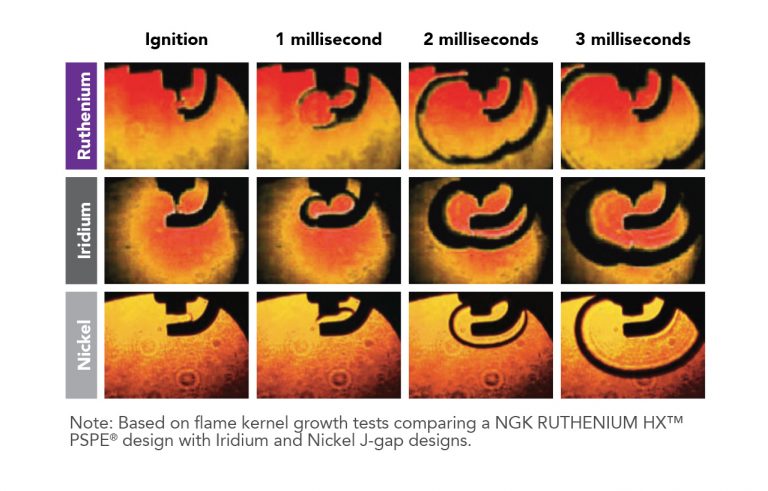
The business end of an ignition system is the humble spark plug. These parts join forces to ignite the delicately balanced mixture of air and fuel in each cylinder, which is ultimately what sends you zooming on down the road. Spark plugs, coil packs and high-tension leads are your vehicle's unsung under-the-hood heroes as they play one of the most important roles in the four-stroke combustion cycle. TL DR I switched to Ruthenium plugs and my car doesn't feel faster.Are you someone who drives a gas-powered car? Has there ever been a time when you've thought about your car's ignition system? If your answer is no, don't worry - you are definitely not alone. Otherwise, I don't see a reason to run to the store and buy them like I did. It's not like these plugs cost more than Iridiums, and I'm not sure there are any downsides to choosing them instead if you're replacing plugs on a vehicle. Next generation engines that were built with Ruthenium plugs might see a small improvement in overall performance, and I'm convinced that OEMs will adopt the new technology to see these gains along with further improvements in spark plug longevity.įor now, I'm pleased with even a barely-perceptible-to-placebo level effect of smoothing out certain engine loads and I won't be reverting to the factory plugs. If the improvement in technology can lead to power, efficiency, or emissions gains I assume it would require a platform to be designed to utilize the design from the ground up. So who knows, I have no way to objectively or quantitatively measure a difference. I do not feel like the car is any faster, and it's possible the engine's ECU optimizes out the quicker ignition by adjusting timing. I assume this is a product of more rapid or more complete combustion. The difference is very subtle but enough that other people have commented it feels smoother with no knowledge a change was made. Driving around a parking lot in first gear, going WOT at 2500 RPM, and going up an incline in top gear at a low RPM (highway and freeway) all feel smoother for the engine. I wonder how higher ignitability might affect the system as a whole?īased on the marketing material, I think the seat of the pants differences I have experienced line up with realistic expectations in an application that wasn't designed to take advantage of the quicker and potentially more complete ignition.Įssentially, at low RPM and high load the engine feels less "buzzy". I don't have access to a dyno or any other objective comparison tools so I'll post a subjective comparison this weekend when I swap the plugs out.

I've only got about 6,000 miles so the factory plugs should still be in excellent condition. I ordered a set for the Si along with my other vehicle for kicks - there have been some interesting claims on other car forums that could absolutely be attributed to simply replacing an old plug with a new one. I may regap them but NGK suggested to use them as gapped due to the very small difference. I verified with NGK these are usable for our application.

They don't list a Ruthenium HX part for the L15, so I found a model that has identical specs to the OEM ILZKAR8J8SY Si plug except the gap is 0.031" instead of 0.030". iridium, platinum, or conventional copper plugs. Outside of their own marketed testing, I can't find any real comparison of them vs. Has anyone seen any real world results of these new spark plugs? My other car is due for spark plugs, so I looked up the NGK plugs to find these.


 0 kommentar(er)
0 kommentar(er)
